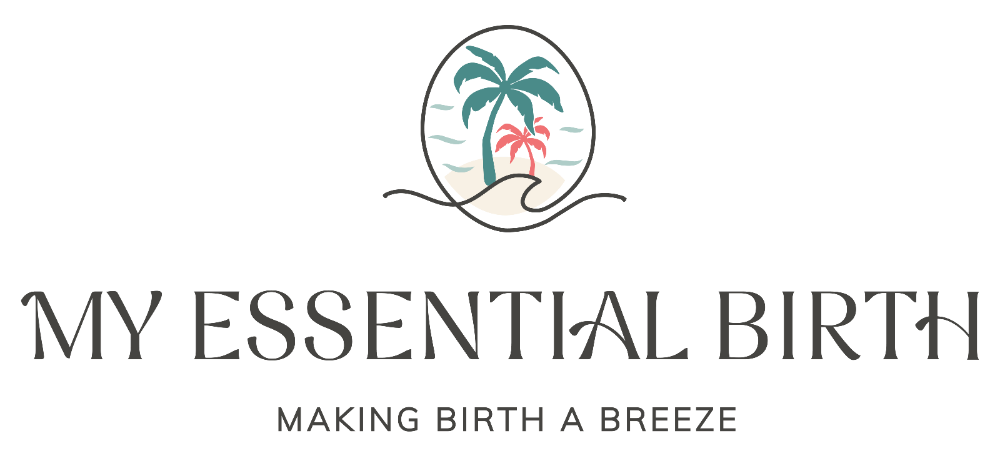
Dr. Robyn Thompson: Encouraging Breastfeeding, Maternal Bonding, & The Importance of a Mother's Intuition
Show Notes:
[1:38] Our Reviewer of the Week, Lbg1188, says: "I started listening when I was around 6 weeks pregnant and I cannot get enough of this podcast. I’m now 25 weeks and will be signing up for the birth course this weekend. I already feel so much more prepared and well educated about pregnancy and birth just from listening and can’t wait to start the course. I love how all the information is presented in an objective way for you to interpret and make educated decisions on your own. I HIGHLY recommend this podcast to all my pregnant friends and even anyone who is trying to become pregnant. I look forward to continuing to listen and learn!"
[2:38] Our guest this week is, Dr. Robyn Thompson, an experienced midwife, family, child and maternal health nurse MCaFHN, breastfeeding specialist and founder of The Thompson Method Breastfeeding Program. For nearly 5 decades, thousands of women and their babies have experienced the benefits of her gentle and intuitive method of breastfeeding.
[3:34] Dr. Thompson began nursing school in 1961 in Australia. After being at home with her children, she decided to go into midwifery. She was then in charge of the Labor Ward for the next 10 years. Her role is to protect women, look after them, nurture them and encourage them to follow their unique instincts and their own maternal knowledge. She has had 50 years of midwifery experience with 25 of those years birthing at home with women. Women teach us so much if we have the time to listen and observe quietly and not invade their space and be beside them rather than dominant over them.
[8:43] Stephanie asks Dr. Thompson how about the influence of labor and birth and how it affects breastfeeding success. "Understanding that the unique mother, her unique breast, her unique nipple, and her unique baby without thinking that everybody has to do the same thing (because they don't) and how we handle and treat the baby, as well, because babies are highly sensitive to what we do, and most mothers wouldn't do that to their babies, if it was left to them to do. So, I think I learned a lot by observing quietly and listening to the women, and picking up what they were saying. If I draw on their knowledge and their knowing about themselves, that's the most important."
[10:48] Babies are highly intelligent. If we draw on that, we can learn to be really calm and gentle with them, and that helps the mother too. Dr. Thompson's role is to nurture the mother because she'll always look after her baby. You're not using your own self knowledge, your own self needs, your own instincts, and not being benefited, by having rules for everything. The mother has more knowledge than everybody really about her baby, but we don't often have the time in the system or the patience to listen to her. It takes a lot more than that to nurture a mother and her baby and reassure her and talk with her, not talk to her or over her.
[20:07] What can moms during pregnancy do then to help set themselves up for success with breastfeeding during pregnancy? Tune into your own instinct always. You have the right to be informed. You have the right to not accept the information they're giving: the benefits, the risks, the alternatives. You have the right to think about it, you have the right to say no, and you have the right to seek another opinion. When you know that, that gives you a little bit more confidence if you do not feel comfortable with what's happening.
[22:06] What kind of effects do we see these kinds of interventions (opioids and epidurals) having on the, the labor, or during labor to support breastfeeding?
[25:47] Dr. Thompson talks about the "Golden Hour" and how it really should be the "Three Golden Hours." Not all babies will go to the breast or do the things that are expected within an hour. Babies will take their time, and they're looking at their mother, and they're touching, and they're feeling and they're moving towards the breast, and it might take an hour, half an hour, or two hours. Try not to be tied up with all the rules that go on because every time we want to do routine procedures on a healthy baby, we're not helping that mother and baby towards her breastfeeding. We're interfering with it.
[31:46] Dr. Thompson always encourages moms to breastfeed from both sides because babies take most from one side and some from the other side with rest and digest after each breast to give that milk that first milk chance to breakdown in the digestive system and for the gas to rise with the fermentation of the milk in the stomach. When the baby's stretched out already, it'll burp itself. We don't need to be banging babies on the back. Dr. Thompson suggests the mother starts on the last breast first because that regulates the volume. Baby will take the most from this breast this time and that balances the volume out. There'll be times when the baby goes on a growth spurt, the baby plateaus, and the milk volume changes in that time. But it takes a little time for it to change, but it does change, and then people panic because they don't think they have enough milk, but it's actually regulating.
[36:56] Dr. Thompson talks about the Thompson Method for Breastfeeding, which is an approach based on her research for breastfeeding. She wanted to know why so many women were coming home with breastfeeding complications from the hospital. She started to look at the anatomy, at the function, what was happening, why it was happening, how it was happening, how babies were being put to the breast when the mother wasn't actually doing it herself, how the prenatal education hadn't really prepared them for the baby to do the work, etc.
[43:13] What is involved with Dr. Thompson's method? She talks about face to breast symmetry, the importance of the momentum, the chin, the importance of the tongue muscle, etc.
[47:12] Where to find Dr. Thompson:
To Leave a Review ⭐️
- Open Apple Podcasts
- Find “Pregnancy & Birth Made Easy” podcast
- Select “Ratings and Reviews”
- Click the stars!
- Select “Write a Review” and tell us what was the most amazing, comforting, eye-opening thing that you loved!
ALL the best,

Links Mentioned:



